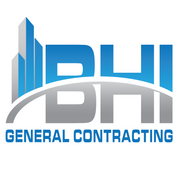What You Need to Know About Zoning Laws for Project Management

Whether you’re constructing a retail building or a restaurant, zoning laws are something every business owner should become acquainted with. A vital aspect of project management, these laws not only define the types of land you can use, but they impact the size and design of your structure, too. Before you create a complex blueprint, familiarize yourself with these laws inside and out, and your project will flow by smoothly. Here are some must-know basics:
Know What Zoning Laws Include
Zoning laws are both federal and municipal, so while they differ widely between areas, they must include the following basics: what differentiates commercial, residential, and manufacturing structures, which types of building are permitted, health and safety regulations, parking requirements, signage, and building size. These laws encourage contractors to build structures that are safe, sound, and well-protected for that area.
Know Which Zone Your Structure Is In
First, familiarize yourself with the zone your building is in. Find the local mapping system, and reduce it down to layers to discover your precise location. Since zoning laws can vary from county to county, if one area has laws that don’t match your needs, the next county might. Studying these maps will help you select the ideal location for your building and learn the laws guarding this area.
 Know What the Construction Requirements Are
Know What the Construction Requirements Are
A skilled building contractor will speed up this process drastically, as he or she will already be acquainted with your zone’s construction requirements. If the area requires a specific Floor Area Ratio (FAR), for instance, you’re limited in how large your structure can be. A building contractor will work with you to create a plan that fits within the zoning requirements, including ample room for parking space and walkways.
Know the Building Codes
In project management, familiarizing yourself with local codes is just another part of the job. Zoning laws keep your structure secure and running smoothly, so get acquainted with them. Inside the building, this includes plumbing codes for pipes, appliances, and sanitary disposal. Mechanical codes guard ventilation, boilers, and water heaters, while fuel gas codes affect the placement and use of gas piping and appliances. Last but not least, don’t forget the importance of maintenance, fire protection, safety exits, and other must-haves.
If you’re starting a commercial construction project, following zoning laws is key. As the premier building contractor in Cincinnati, OH, BHI General Contracting knows project management inside and out, from the laws surrounding your latest retail building to the parking and safety measures required to keep people inside safe. A one-stop contracting shop, these experts work in diverse industries ranging from restaurants to malls to medical facilities. Whether you’re building from the ground up or restoring your current structure, this talented team can help. Visit their website to learn more, or call (513) 330-5686 to discuss your project today.
About the Business
(6 reviews)
Have a question? Ask the experts!
Send your question

